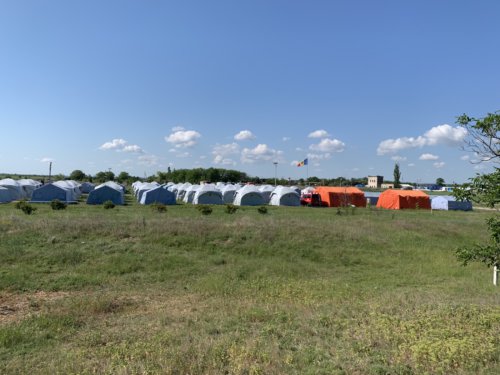On May 24, the third day of his visit, Mykola Skrypkovskiy visited a tent camp for refugees from Ukraine in the village of Palanka.
Moldova is often perceived as a transit country for Ukrainians fleeing the war. Thus, some cross the border and go further – to Poland, Romania, Italy. But there are also those who stay to be closer to home.
Palanka is the main hub for the arrival of refugees. The “hottest” days were at the beginning of the war, when shock and fear caused people to stand in huge lines. Now there are no crowds – the buses come mostly from the Odesa or Mykolaiv regions.
Emergency assistance is provided at border and transit checkpoints, basic living conditions have been established in refugee accommodation centers, monetary assistance and protection services are available for refugees at risk or with special needs.
Palanka is a fine place to take buses and get to other cities or even countries. And it’s also an excellent location to start planning your first days after a forced move.
The tents are 20 and 10 square meters in size and have ventilation, air conditioning and heating systems to keep people comfortable there. Beds and tables are set up in the middle of the camp, where you can sleep and eat.
Refugees are provided with free hot food and drinks, hygiene products, basic items for children, and food for pets. There is free access to the Internet. Police, EMERCOM and medical services are on call 24 hours a day. You can also get advice from a psychologist.
There are also members of the emergency response team ACTED. Free buses transport refugees to Chisinau, other cities in Moldova or Romania. ACTED staff have been in Palanka since March 4. They distribute SIM cards and help collect supplies for the refugees’ needs.
“It’s very difficult to use the term “refugees”, because these people think about going back everyday. Some even go back and forth: visiting elderly parents, checking on an apartment or house, picking up things they need. But those who have decided to stay and try to put their lives in order will always receive material, informational, medical, legal and psychosocial support,” Mykola Skrypkovskiy summarized his impression of his trip to Palanka.

